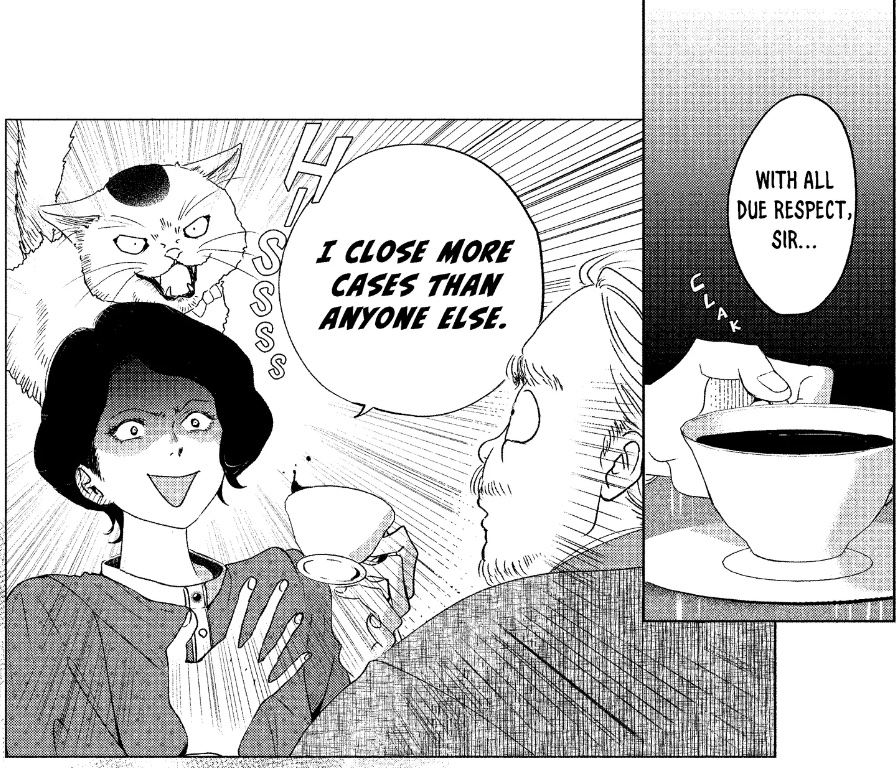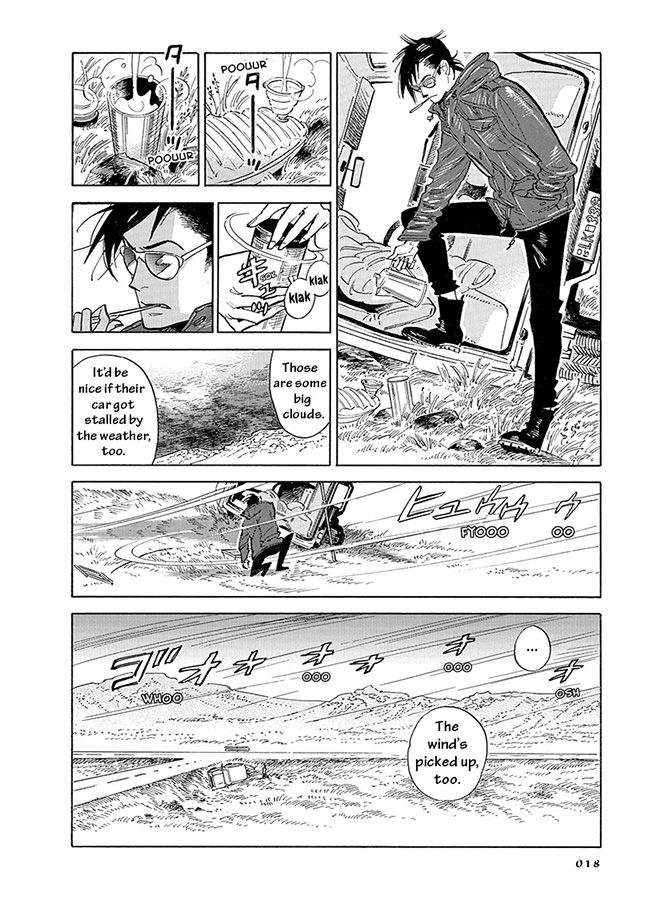Have you seen The Law According to Lidia Poët? It’s a period drama that’s loosely inspired by the career of Italy’s first woman lawyer. Though the series explores the real-life Poët’s long, lonely battle for professional recognition, it also makes plenty of room for romance and adventure, portraying her as a free spirit who solves mysteries with the aid of a handsome male journalist. The show’s breezy tone is more Remington Steele than Masterpiece Theater, but it never shies away from acknowledging that nineteenth-century Italy was truly a man’s, man’s world.
If Lidia Poët sounds like something you’d watch, you might like My Dear Detective, which also features a plucky heroine in a male-dominated field. The setting is Taisho-era Japan, where twenty-something Mitsuko Hoshino works for the Ginza Detective Agency as an investigator. Though Mitsuko is a natural, she faces skepticism and condescension in her day-to-day work that sometimes shades into outright hostility; early in volume one, for example, local hooligans vandalize the agency with slogans accusing her of “stealing men’s jobs.” Her boss is unfazed, however, and remains quietly but kindly supportive of her desire to be, in her words, “a working woman.”
Through one of those only-in-manga contrivances, Mitsuko crosses paths with Satou Yoshida, a handsome young man who turns out to be the scion of a prominent family. (The Yoshidas own one of the poshest department stores in Tokyo.) He soon joins the agency as Mitsuko’s assistant, chauffeur, and bodyguard, dropping the Yoshida name whenever it expedites their investigation, and swooping in to save Mitsuko whenever she’s in danger. Mitsuko—ever the consummate professional—won’t admit to herself that she likes Satou, and puts up a blustery front any time he flirts with her.
Though the script is lively and the pacing brisk, the artwork is a little plain. The costumes, hairstyles, and props are just detailed enough to give a sense of the period, but the backgrounds are a little too sterile and generic to really evoke Tokyo in the 1920s. More appealing are the character designs: Natsumi Ito does an effective job of conveying each cast member’s age, social standing, and personality through small but meaningful details. Mitsuko, for example, sports a sleek, modern bob and knee-length skirts, while the older women she interacts with favor Nihongami and kimono, evoking the transitional spirit of the Taisho era.
Taken as a whole, however, My Dear Detective is the manga equivalent of The Law According to Lidia Poët. One the one hand, it’s a fizzy, fun series that offers solid mysteries with interesting twists solved by impossibly good-looking people. On the other hand, My Dear Detective gently reminds the reader how many practical barriers professional women faced a century ago, acknowledging the degree to which misogyny made it all but impossible for smart, ambitious women to chart a course for themselves outside of traditional gender roles. These two sensibilities don’t always mesh harmoniously, but most of the time My Dear Detective toes the line between escapism and didacticism in a highly entertaining fashion. Lidia Poët would undoubtedly approve. Recommended.
MY DEAR DETECTIVE: MITSUKO’S CASE FILES, VOL. 1 • BY NATSUMI ITO • TRANSLATED BY SAMUEL R. MESSNER • LETTERING BY BARRI SHRAGER • COVER DESIGN BY GLEN ISIP • AZUKI • 183 pp. • NO RATING

